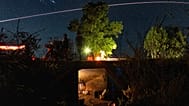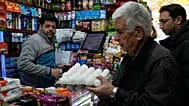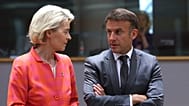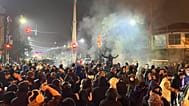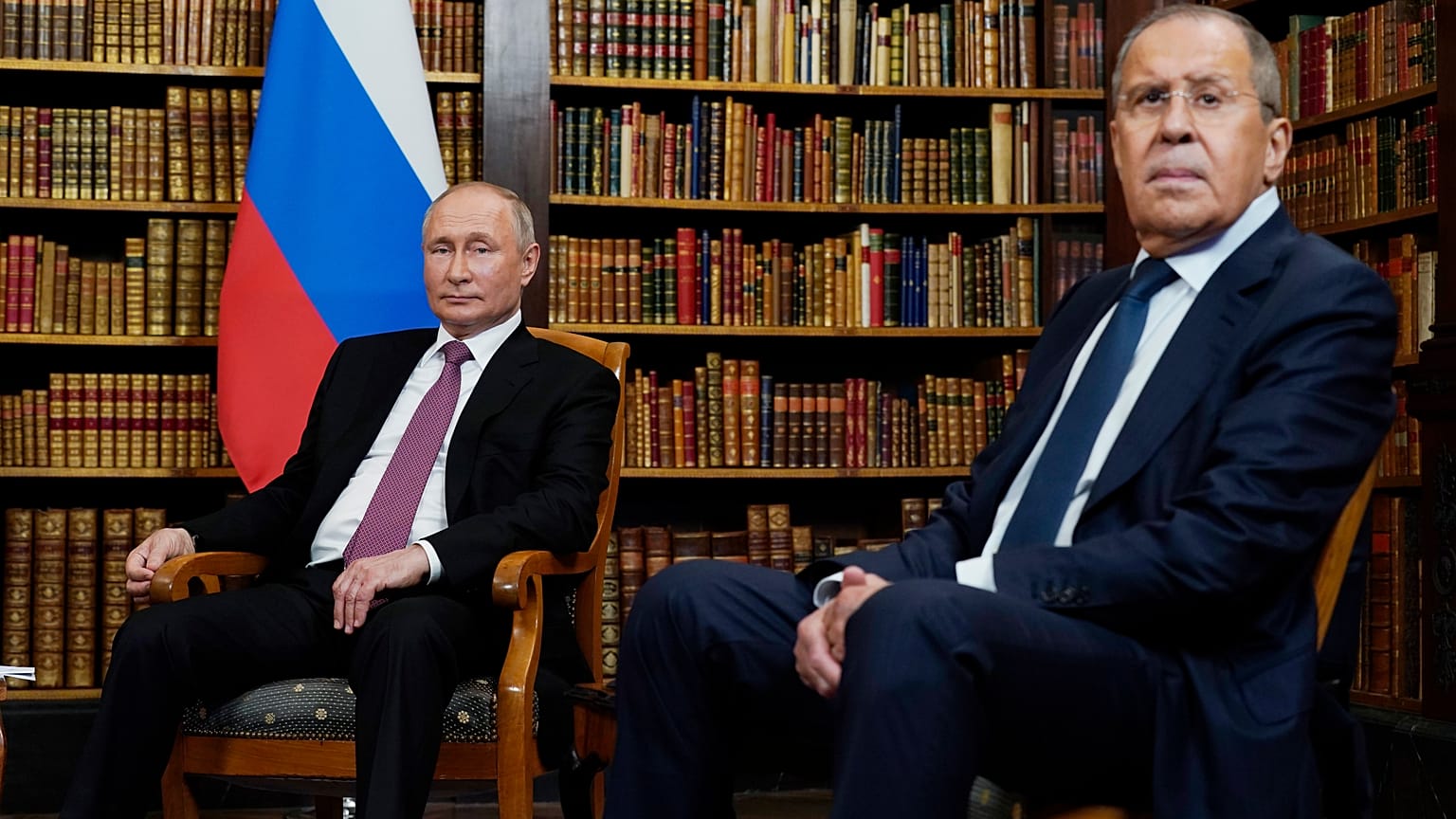The bloc has also extended the sanctions to Russia's Foreign Minister Sergei Lavrov.
The European Union has frozen the assets of Russia's President Vladimir Putin and Foreign Minister Sergei Lavrov in response to the invasion of Ukraine, adding the two names to the EU sanctions list.
The measure means that EU-based banks will be prohibited from making funds available to them, although this will depend on the degree of cooperation from the financial entities.
The decision was confirmed by Josep Borrell, the EU's foreign policy chief, on Friday evening.
"Russia needs to see that it is going to be isolated from the international community," said Borrell.
Putin is the third world leader to be personally sanctioned by the EU, following Belarusian President Alexander Lukashenko and Syrian President Bashar al-Assad, Borrell noted.
Earlier this week, the bloc sanctioned 351 Duma lawmakers and members of Putin's inner circle.
Putin and Lavrov, however, will not be subject to a travel ban, a regular sanction that often accompanies the freezing of assets, in order to keep the diplomatic channels open.
The limitations of Western diplomacy have been exposed during the border crisis, now turned into a fully-fledged war, although French President Emmanuel Macron spoke with Putin as recently as Thursday evening.
The names of Putin and Lavrov were excluded from the previous package of sanctions and it was unclear if the latest raft, discussed on Thursday during an in-person meeting of EU leaders, would go as far as punishing the two most recognisable faces of the Russian government.
The overwhelming speed in which the military attack is unfolding has drastically increased pressure on Western countries to come up with harsher and more radical punishments.
Thursday's initial set of measures was then passed onto the bloc's foreign affairs ministers to put the finishing touches. It was during these ministerial discussions that the option to freeze Putin's and Lavrov's financial assets came back to the table as a feasible option.
The final set of sanctions was unveiled on Friday evening after a meeting of EU foreign affairs ministers. The whole package will enter into force after its publication in the EU's official journal.
"We're going to get an agreement on that today. I think both of those names will be added to the long list of other names," Simon Coveney, Ireland's foreign affairs and defence minister, told reporters before heading to the ministerial meeting.
"I think that's the right thing to do because they are the key decision-makers in terms of what's happened over the last week or so."
Coveney said excluding Putin and Lavrov would "undermine the credibility" of the sanctions but added travel bans should not be slapped for the time being.
"There must always be an opening for dialogue and diplomatic engagement, and if that involves travel, that needs to be facilitated," he said.
Freezing Putin's assets is a move more symbolic than actually punitive.
The obscurity surrounding Putin's persona also extends to his personal wealth: according to Fortune magazine, the president's networth could range between $70 billion and $150 billion. It remains to be seen how much of this wealth is stored in EU territory.
"Believe me, I’m not in the secret of Mr Putin’s and Mr Lavrov's wealth. It’s not my duty. There are people who will take care of that," said Borrell, when asked about how to trace the president's assets to freeze them.
The top diplomat added that a third sanctions package is on the pipeline, but avoided giving details.
"Nothing’s off the table," he said. "We're exploring all possibilities depending on the Russian behaviour."
Borrell confirmed Russia's expulsion from SWIFT, the international payment system, was not in the current package but was "possibility to keep for future negotiations."

